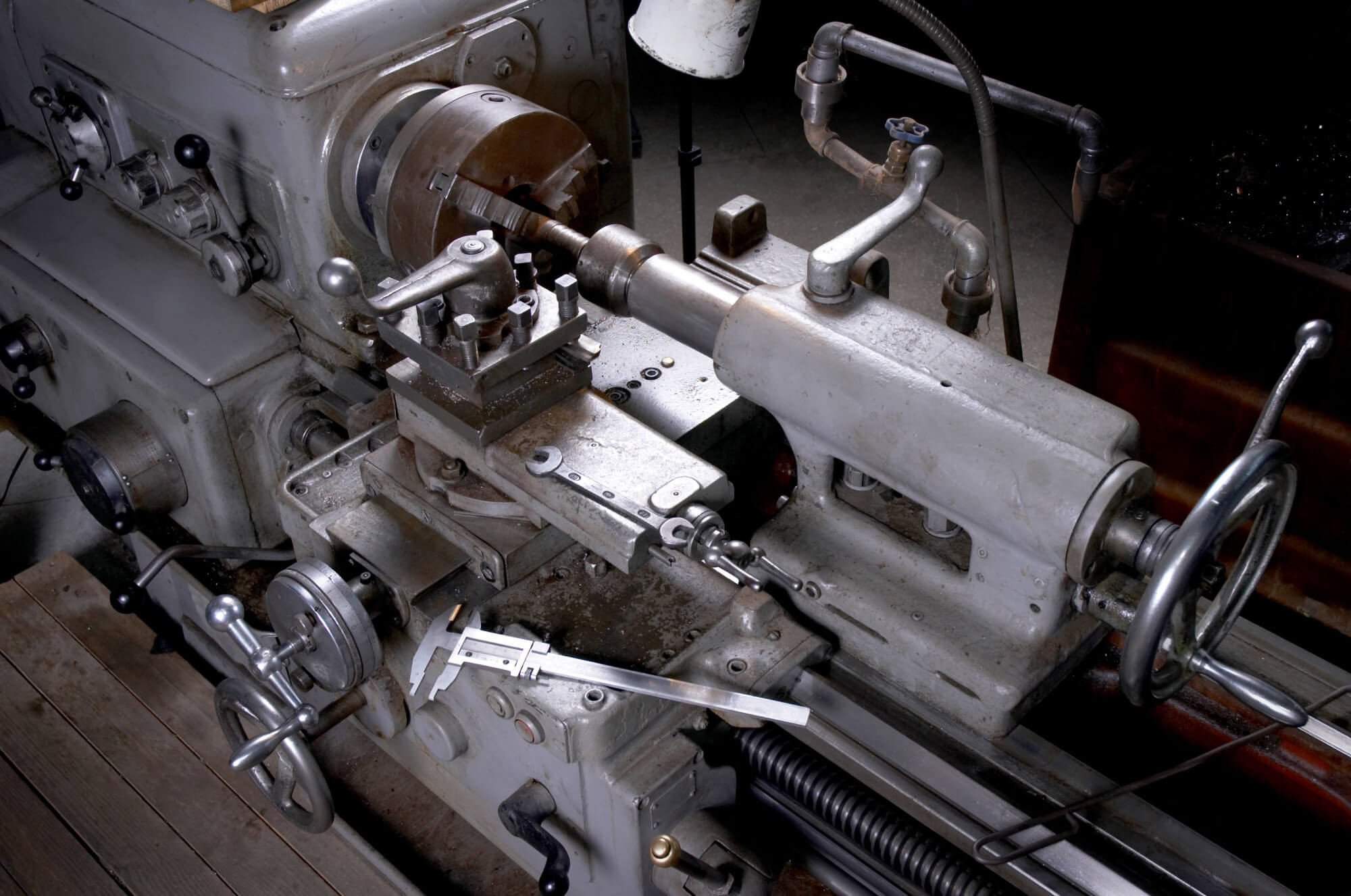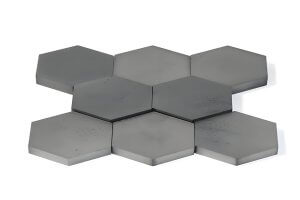In the field of CNC machining, material selection is critical for determining product quality, durability, and cost-effectiveness. For procurement specialists and engineers alike, the question often arises: Is titanium stronger than steel, and which material is more suitable for CNC machining? Understanding the key differences between these two popular materials can help buyers make better choices, whether they are procuring custom parts or comparing suppliers.
In this comprehensive guide, we will explore the material properties of titanium and steel, examining their advantages, challenges, and applications in CNC machining. By the end of this article, you will have a clear understanding of when to choose titanium over steel—or vice versa—based on project requirements, cost, and long-term performance.
The Role of Material Selection in CNC Machining
Before diving into the comparison between titanium and steel, it’s important to understand how CNC machining works and why material selection plays such a pivotal role. CNC machining is a computer-controlled process that allows for high precision in cutting, shaping, and finishing parts. The type of material chosen directly impacts production speed, tool wear, and the final product’s quality.
Key Considerations for CNC Machining:
- Machinability: This refers to how easily a material can be cut and shaped using CNC equipment. Materials like steel tend to be easier to machine, while titanium often requires specialized tools and processes.
- Durability and Strength: The strength of a material determines its performance under load. In high-stress environments, the durability of parts made from steel or titanium is critical.
- Corrosion Resistance: Certain applications, especially in the aerospace, medical, and marine industries, require materials that resist rust and corrosion. Here, titanium often excels.
- Thermal Conductivity: This refers to how well a material conducts heat. Titanium, with its low thermal conductivity, presents unique challenges in machining, while steel offers better performance in heat management.
Each of these factors plays into the decision of whether to choose titanium or steel for CNC machined parts.
Titanium vs. Steel – A Head-to-Head Comparison
Let’s explore the fundamental properties of titanium and steel. By comparing their strengths and weaknesses, we can better understand which material is the right fit for CNC machining in different contexts.
| Property | Titanium | Steel |
|---|---|---|
| Density (g/cm³) | ~4.5 | ~7.85 |
| Tensile Strength (MPa) | 434 – 1200 | 400 – 1500 |
| Yield Strength (MPa) | 275 – 825 | 250 – 1400 |
| Hardness (Brinell) | 70 – 220 | 120 – 230 |
| Corrosion Resistance | Excellent | Varies (better in stainless) |
| Machinability | Difficult (requires cooling) | Easier (depends on the alloy) |
Strength Comparison: Is Titanium Stronger Than Steel?
When it comes to raw strength, steel can sometimes outperform titanium in tensile strength, depending on the alloy. However, titanium offers a much better strength-to-weight ratio, making it a popular choice for industries where weight is a factor, such as aerospace and medical.
- Tensile Strength: Steel can achieve tensile strengths of up to 1500 MPa in high-strength alloys, making it superior in this aspect. However, titanium provides adequate strength while being far lighter.
- Yield Strength: Titanium’s yield strength, particularly in alloys like Ti-6Al-4V, is comparable to high-strength steel, making it suitable for high-performance parts.
Machinability
One of the biggest challenges with titanium is its poor machinability compared to steel. Titanium’s low thermal conductivity means it retains heat during machining, causing tools to wear out faster. Specialized tooling and cooling methods are required to achieve precision and avoid overheating. On the other hand, steel, especially mild and stainless varieties, is easier to machine and allows for faster production.
Corrosion Resistance
Titanium is well-known for its excellent resistance to corrosion, even in harsh environments. This makes it a top choice for marine applications, medical devices, and aerospace parts exposed to moisture, chemicals, or saltwater. While stainless steel offers some corrosion resistance, it does not match the performance of titanium in highly corrosive settings.
Cost Implications
The price of raw titanium is considerably higher than steel. Additionally, the difficulties in machining titanium mean that production costs can increase due to tool wear, slower machining speeds, and the need for more specialized equipment. Steel, by contrast, is widely available, affordable, and cost-effective to machine, making it the better choice for large production runs.
Applications of Titanium and Steel in CNC Machining
Choosing the right material for CNC machining involves considering the application and the environment in which the part will be used. Below is a comparison of some of the key industries and the typical applications for titanium and steel.
Titanium in CNC Machining
Aerospace Industry:
Titanium’s combination of strength, lightness, and heat resistance makes it a critical material in aerospace applications. Parts such as turbine blades, engine components, and structural airframe pieces are often machined from titanium.
Medical Devices:
Titanium’s biocompatibility makes it ideal for medical implants, such as joint replacements and bone plates. Additionally, its corrosion resistance ensures that the parts can endure the harsh conditions within the human body.
Marine Components:
Due to its resistance to saltwater corrosion, titanium is frequently used in the construction of marine components, including propellers, hulls, and offshore drilling equipment.
Steel in CNC Machining
Automotive Industry:
Steel’s strength and cost-effectiveness make it ideal for automotive components, including engine parts, structural frames, and drivetrain components.
Construction:
Steel’s high tensile strength and durability make it the go-to material for construction equipment and infrastructure components.
Industrial Machinery:
Due to its affordability and machinability, steel is commonly used to manufacture industrial machinery, including tools, fixtures, and machine components.
| Industry | Titanium Applications | Steel Applications |
|---|---|---|
| Aerospace | Turbine blades, airframes | Landing gear, fasteners |
| Medical Devices | Implants, prosthetics | Surgical tools |
| Automotive | Lightweight components | Engine parts, body panels |
| Construction | High-stress structures | Beams, frames |
| Marine Components | Propellers, hulls | Machinery, fixtures |
Challenges in Machining Titanium
Although titanium offers numerous benefits, it presents several challenges when used in CNC machining, particularly due to its low thermal conductivity. Titanium tends to overheat, which causes rapid tool wear. To address these challenges, advanced cooling methods, specialized tools, and slower cutting speeds are typically employed.
Common Challenges:
- Tool Wear: Due to the heat buildup during machining, tools wear out more quickly when cutting titanium. This adds to the cost and time required for production.
- Machining Speeds: Cutting titanium requires slower speeds and more time, which can lead to longer production cycles.
- Burr Formation: Titanium parts often require additional finishing work to remove burrs, further increasing production costs.
When to Choose Steel for CNC Machining
For industries where cost-efficiency and machinability are top priorities, steel remains the material of choice. Steel’s wide variety of alloys ensures that it can be tailored for specific applications, whether you need high-strength, corrosion resistance, or heat tolerance.
Why Choose Steel:
- Affordability: Steel is more budget-friendly, both in terms of raw material costs and CNC machining time.
- Ease of Machining: Steel is easier to machine, which leads to quicker production times and lower costs.
- Wide Range of Alloys: From carbon steel to stainless steel, each alloy offers unique properties that can be selected based on specific needs.
Cost Considerations – Titanium vs. Steel in CNC Machining
When evaluating materials for CNC machining, cost is always a key factor. Below is a rough comparison of the cost of titanium and steel, including raw material prices and estimated machining costs.
| Material | Cost (per kg) | Machining Cost |
|---|---|---|
| Titanium | ~$35 – $50 | High (due to tool wear and complexity) |
| Steel | ~$1.50 – $5 | Lower (less tool wear, easier to machine) |
For high-performance industries like aerospace and medical devices, the higher cost of titanium
is justified by its superior properties. However, for general manufacturing and large-scale production, steel is the more practical choice due to its lower cost and ease of machining.
Conclusion: Making the Right Material Choice for CNC Machining
Ultimately, the decision between titanium and steel for CNC machining will depend on the specific needs of the project. Titanium is the better choice for high-performance applications that require lightweight strength, corrosion resistance, and biocompatibility. However, steel remains the more affordable and versatile option for general manufacturing, especially in cost-sensitive industries.
By understanding the properties, costs, and applications of these two materials, procurement specialists and engineers can make more informed decisions about which material is best suited for their CNC machining needs.
FAQs:
- Is titanium more difficult to machine than steel?
Yes, titanium is more challenging to machine due to its low thermal conductivity and rapid tool wear, requiring specialized equipment and cooling methods. - Which material is more cost-effective for CNC machining, titanium or steel?
Steel is generally more cost-effective, both in terms of raw material costs and machining expenses. Titanium is more expensive but may be justified for certain high-performance applications. - Is titanium stronger than steel in all cases?
Not necessarily. While titanium has a better strength-to-weight ratio, certain steel alloys can have higher tensile strength than titanium. - Which industries benefit most from titanium in CNC machining?
Aerospace, medical devices, and marine industries benefit most from titanium due to its corrosion resistance, strength, and biocompatibility. - What is the biggest challenge in machining titanium?
The biggest challenge is managing the heat generated during machining. Titanium’s low thermal conductivity can cause overheating, leading to rapid tool wear. - How does steel compare to titanium in terms of machinability?
Steel is generally easier to machine and allows for faster production times, making it more suitable for high-volume projects.
Other Articles You Might Enjoy
- CNC Machining in the Watchmaking Industry: Stainless Steel vs. Titanium Cases
CNC Machining and its Role in the Watchmaking Industry In the world of horology, CNC machining has proven itself to be an invaluable tool. This modern method allows custom parts…
- Leveraging CNC Machining for Medical Devices: Titanium vs. Stainless Steel Materials
CNC Machining in Medical Device Manufacturing: An Introduction Computer Numerical Control (CNC) machining is a critical practice within the field of medical device manufacturing. This advanced technology allows for precision-engineering,…
- The Efficiency of CNC Machining: Titanium vs. Steel for High-Performance Components
Introduction to CNC Machining and Material Selection Computer Numerical Control (CNC) machining revolutionizes the manufacturing space by enabling highly accurate, repeatable, and complex component production. In high-performance industries like aerospace…
- Exploring CNC Machining: From Titanium to Snap Fit( cnc cutting tools Richard)
Central to the manufacturing industry, Computer Numerical Control (CNC) machining uses pre-programmed computer software to control machinery and tools. By understanding the scope of materials utilized in CNC machines like…
- Zirconium vs. Titanium: Evaluating CNC Machining for Critical Applications
Introduction: Zirconium vs. Titanium in CNC Machining In recent years, we've observed an increasing trend in the use of zirconium and titanium materials in the artful domain of CNC machining.…
- PEEK vs. PEI in CNC Machining: Which Offers Better Performance for Engineering Applications?
Introduction to CNC Machining and the Materials PEEK and PEI CNC machining is an automated manufacturing technology that involves computer controls directing machinery in performing material cutting operations to produce…






